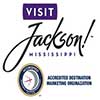Heart Association cause hits close to home
Posted on: April 18,2013
(Writer’s note: Wednesday was a big day here at your Mississippi Sports Hall of Fame and Museum. Leading off, we had the American Heart Association hosting its annual Heart Walk kickoff breakfast on the museum’s arena floor. These people do great work for a great cause, and we were proud to have them. Later, we had a visit from Mississippi and Pro Football Hall of Famer Billy Shaw, the Vicksburg native who was honored in his hometown by the Pro Football Hall of Fame on Tuesday. Turns out, Shaw would have been a great speaker at the Heart Association breakfast. Billy, 74, one of the greatest offensive linemen in football history, had heart problems years ago, is now 50 pounds under his playing weight and looks more like an outside linebacker than an offensive lineman. Look for more on Billy on this website soon.
Meanwhile, the American Heart Association had to settle for me as a speaker. I do have a quite personal message about heart disease. The text follows…)
THANK-YOU, everyone, for being here at your Mississippi Sports Hall of Fame. I also want to thank you all for being a part of what I believe to be a most worthy cause across America but especially here in Mississippi where we face some unique and difficult challenges when it comes to heart disease and its causes.
I think it is all together fitting that you the Heart Association would hold this important breakfast meeting here at the place where Mississippi’s greatest athletes are celebrated and our incredible sports history is preserved for this and future generations. It has been proven over and again that staying active ― keeping that heart pumping ― is the best prevention of heart disease. Nothing keeps kids physically active more than their involvement in athletics. Not everybody can be Walter Payton or Jerry Rice or Brett Favre or Eli Manning, but everyone can play games that keep you moving and keep your heart pumping, whether it be basketball, tennis, cross country, jumping rope or hopscotch.
What I would love to see in our schools are required physical education classes that teach health activities for life. Every study I’ve ever seen shows that physically fit students perform better in the classroom than those who are sedentary. I am afraid we are failing our young people miserably in this area of education. And now I’ll get off that soapbox.
But I do want to tell you why heart health is so important to me. My daddy’s daddy was a farmer who worked hard, physically, nearly every day of his life. He plowed, he planted, he picked. He didn’t need to walk or run for exercise and he sure as hell didn’t play golf. His exercise came from his his work every day. He lived to be 90. He had three sons. Stay with me now…
The oldest son became the chairman of a university mathematics department. Uncle Hulon did not exercise much other than his brain. Calculus and trigonometry, unfortunately, didn’t do much for his heart. He died far too young of a heart attack after years of heart problems. The second oldest, my uncle Jimmy, was another terrifically smart man. He was a Georgia Tech-educated engineer who looked fit as a fiddle. He was a great guy, a great father, wonderful uncle, but he had the Cleveland curse. He was shaving one morning at the age of 68. He fell dead of a massive coronary. And now we get to the youngest brother who was my Daddy, Ace, a member of this Hall of Fame.
Daddy was a helluva athlete when he was young, a football and baseball and track star. He became, as many of you know, a sports writer. Instead of playing games, he watched them and wrote about them. He paid no attention to his diet and exercised little at all unless you count riding in a golf cart occasionally. Daddy, plagued by heart problems, died at 68. It was a stroke that killed him. But I’ve always thought the stroke just beat a heart attack to the punch.
And then we come to my younger brother Bobby, the guy just about everyone I know has envied at one time or another. That’s because has hunted and fished and written about for most of his life. At age 40, Bobby suffered a massive coronary that nearly killed him. In fact, Dr. David Mulholland could scarcely believe it didn’t kill him.
Bobby had 100 percent blockage in the artery I think some of you cardiologists refer to as the widow-maker. I have been told that 95 percent of victims of such a heart attack don’t make it. Essentially, Bobby’s circulatory system found alternate routes for his blood flow. In layman’s terms, some veins turned into arteries. I never knew that could happen. I am forever thankful it did.
Bobby believes Dr. Mulholland saved his life, not only by getting him on an exercise plan and a much more healthy diet, but by recognizing Bobby’s problems with sleep apnea and treating him for that as well. “That turned my whole life around,” Bobby says.
Now then, my good friend Dr. Bryan Barksdale is my cardiologist and also a big supporter of this museum. Thank-you, Bryan, on both counts. So far, so good with my ticker. Bryan I think will tell you that I have just about worn out his treadmill every time I’ve been on it.
Sometimes people laugh at me for walking up and down the hills, sweating my rear end off in July and August in my Fondren/Woodland Hills neighborhood. Doesn’t bother me. Doesn’t bother me either that I used to be a competitive runner, reduced to a jogger. Then I became a cross between a jogger and a walker, something I call a wogger. And now I’m just a walker: 15 to 20 miles a week, every week, rain or shine. I walk just fast enough to keep my heart rate up for at least 45 minutes at a time.
Here’s the deal: I knew long, long ago I was never going to be Jerry Rice or Walter Payton or Brett Favre. But now I’m 60 years old and I am still walking and enjoying life. I understand better than most that you good folks at the American Heart Association have an important mission. I wish you all the success in the world.
Today, I could tell you a million Mississippi sports stories but you can come here to your Mississippi Sports Hall of Fame and Museum any day of the week and listen to them by the thousands. Here, they are told by the legends themselves on our interactive kiosks. Instead, I’m going to tell you a story much more fitting for this occasion. We’re going back to my brother Bobby and his stay in coronary care. One day, Dr. Mulholland came in and noticed on the records that Bobby kept having periods of accelerated heart rate. You should know that the hospital at that time had an exchange nursing program that involved a lot of young women from Nova Scotia. Bobby says these young women had several things in common: They were blonde, they were long-legged, they were exceptionally nice and they were drop-dead gorgeous.
Before Dr Mulholland had a chance to ask Bobby about his racing heart, two of those young blonde nurses came strolling in. Dr. Mulholland did a double take himself. And, right on schedule, Bobby’s heart rate accelerated. Both at them looked at the heart machine and then they looked at each other and started laughing.
No, Dr. Mulholland did not ban those blonde nurses from Bobby’s room, but he did tell them: “No more sponge baths for the big fellow.”
That’s a true story. You couldn’t make it up. And now, 18 years later, Bobby is still hunting and fishing and writing about it. I asked him to be here this morning. He told me thanks, but no thanks, the crappie are biting like crazy on the reservoir.
Thank-you again. I urge your support for the American Heart Association. And please, everyone, come back and visit your Mississippi Sports Hall of Fame and Museum.
••••
For more information on the American Heart Association’s annual Heart Walk, click here.
••••
Looking for a unique venue to host dinner, a party or another big event. Look no further than here.



